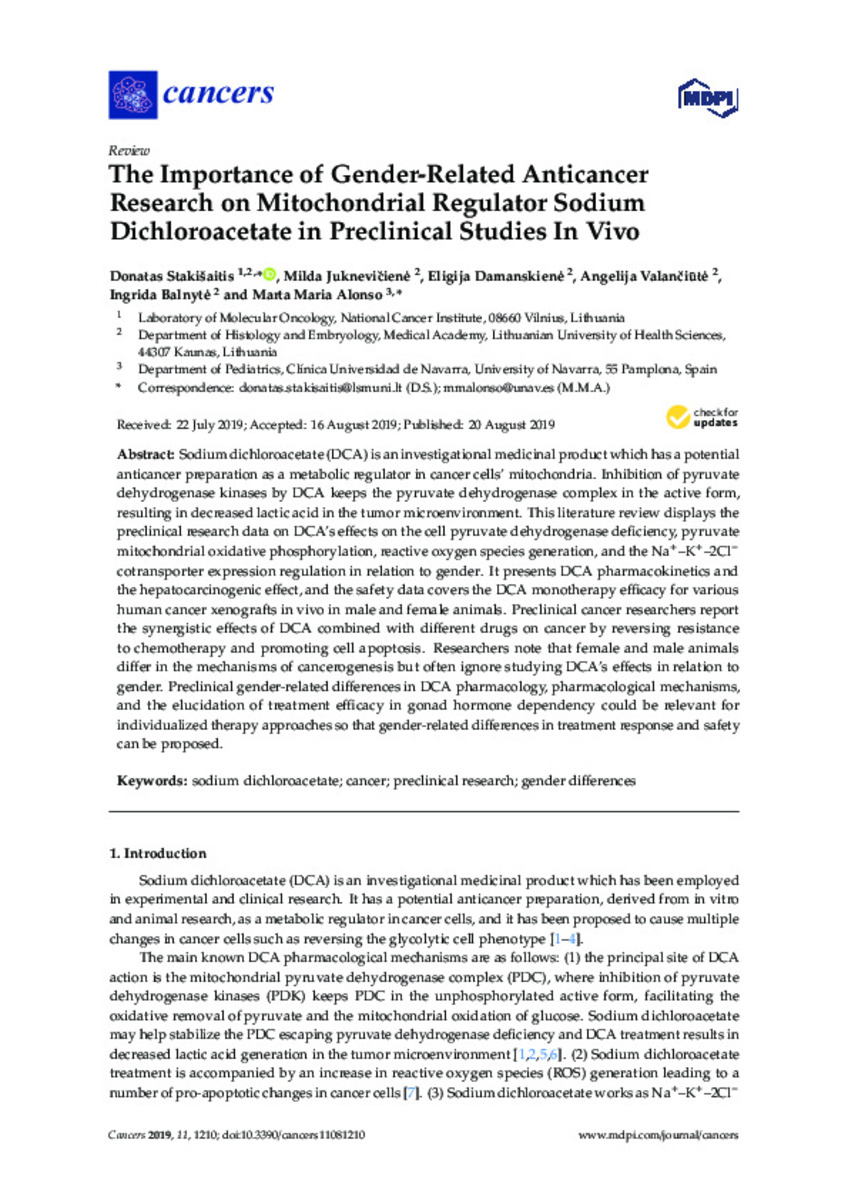The importance of gender-related anticancer research on mitochondrial regulator sodium dichloroacetate in preclinical studies in vivo
Keywords:
Sodium dichloroacetate
Cancer
Preclinical research
Gender differences
Note:
Licensee MDPI, Basel, Switzerland. This article is an open access
article distributed under the terms and conditions of the Creative Commons Attribution
(CC BY) license (http://creativecommons.org/licenses/by/4.0/).
Citation:
Stakisaitis, D. (Donatas); Jukneviciene, M. (Milda); Damanskiene, E. (Eligija); et al. "The importance of gender-related anticancer research on mitochondrial regulator sodium dichloroacetate in preclinical studies in vivo". Cancers. 11 (8), 2019, 1210
Statistics and impact
0 citas en

0 citas en

Items in Dadun are protected by copyright, with all rights reserved, unless otherwise indicated.







